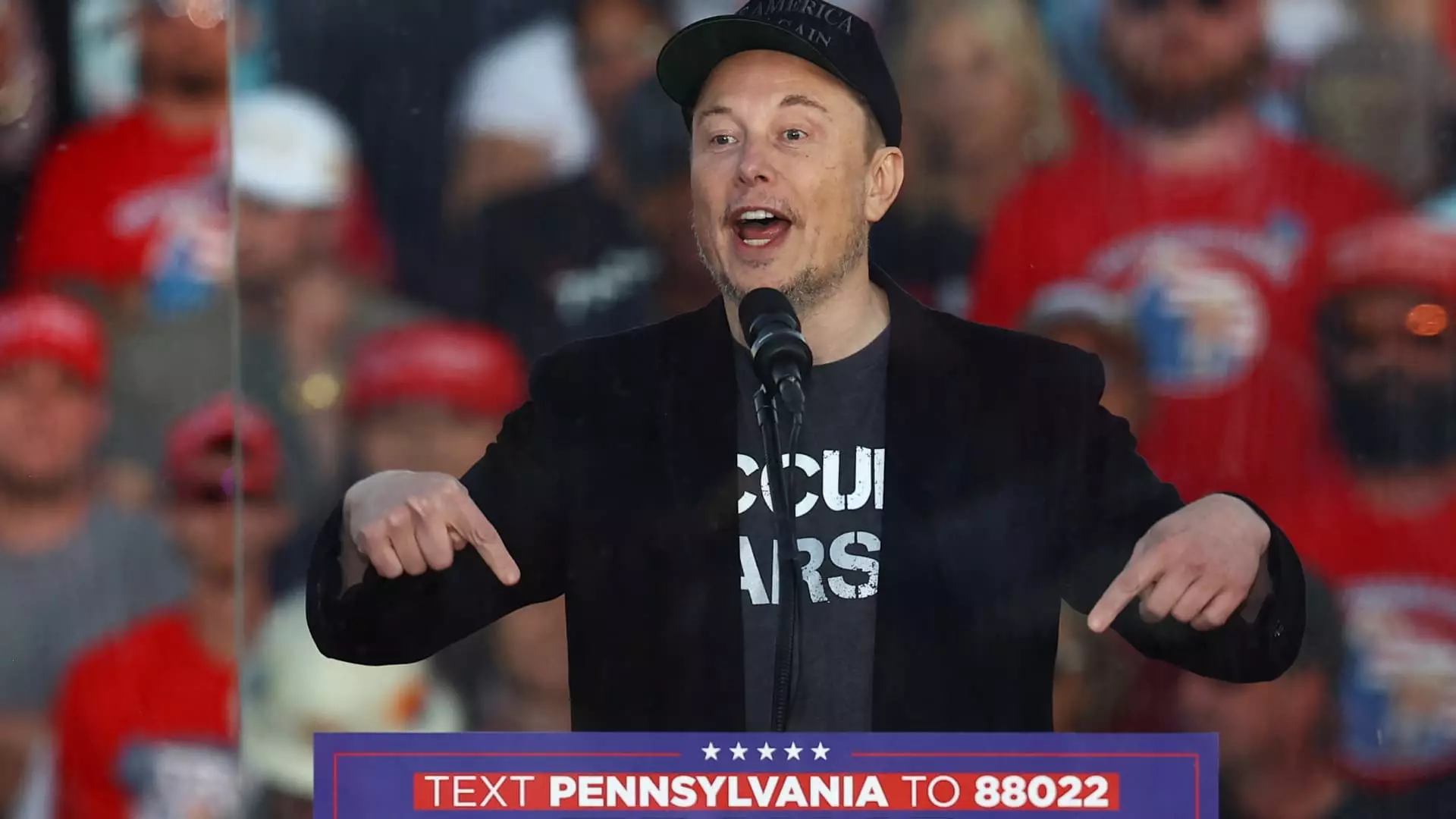In the ever-evolving landscape of American politics, few interactions draw as much scrutiny as those between powerful business magnates and political aspirants. Recently, Tesla’s CEO Elon Musk has ignited a firestorm of debate with his backing of Donald Trump for the upcoming presidential election. His promotion of a $47 referral bonus scheme aimed at generating support for a political petition has raised ethical questions around voter engagement, privacy, and the relentless rise of monetized political advocacy.
Musk’s announcement came via a post on X, the social media platform he owns, where he touted the financial incentive for referring registered voters in so-called “swing states” to sign an online petition. This petition, which ostensibly champions support for First and Second Amendment rights, is criticized not just for its dubious authenticity, but also for its lack of transparency regarding its goals. There is no explicit explanation regarding what demands the petition aims to advance, nor is there clarity about whom it will be delivered to, amplifying skepticism about its genuine purpose.
Instead, the primary focus appears to be a data acquisition strategy that prompts users to provide personal contact information alongside their support. This raises significant ethical red flags: is the intention to mobilize voters, or is it primarily about harvesting valuable contact information under a veneer of civic engagement? As a billionaire promoting a political agenda, Musk’s motivations come under scrutiny, and skeptics question the integrity of his engagement tactics.
Swing states like Pennsylvania, Georgia, and Arizona are pivotal in determining the outcome of elections, as they often sway results one way or another. Recognizing these stakes, Musk’s America PAC aims to tap into these regions’ electorates. However, the question arises: is this method of engagement democratically permissible? The referral bonus incentivizes individuals to funnel their acquaintances into a political database, which poses a risk of manipulation and commodification of the voting process.
Moreover, the emphasis on financial rewards may inadvertently prioritize profitability over genuine political engagement. By framing voter registration as “easy money,” the campaign risks trivializing the serious responsibilities of civic participation. Voting is fundamentally about expressing values and priorities; reducing it to a mere transactional exchange distorts its essence and could ultimately alienate potential supporters who seek more substantial forms of engagement.
While the framework set forth by Musk’s PAC may comply with regulatory requirements, it skirts dangerously close to ethical boundaries. The involvement of state officials, as witnessed when inquiries were launched in North Carolina and Michigan concerning previous data-collection practices, underscores the precarious nature of such initiatives. Musk’s acknowledgment of problems—including non-functioning links designed to assist voter registration—implies a lack of diligence in safeguarding user data and a failure to uphold transparent practices.
Despite being the presumed founder of the America PAC, Musk’s financial commitment to it has been murky; federal disclosures showed no contributions from him directly until recently. This opacity raises pertinent questions regarding the influence exerted by wealthy individuals in politics and the potential ramifications on democratic processes. As Musk amplifies his support for Trump, the intricacies of his financial contributions and influence need scrutiny.
The intertwining of wealth, data collection, and political campaigning illustrated by this scenario poses significant implications for the future of democracy in America. The blending of business practices with political advocacy threatens to undermine the integrity of electoral participation. When monetary incentives shape voter engagement, the potential for manipulation looms large, hampering genuine dialogue and representation.
As the political climate continues to heat up, it becomes increasingly crucial to scrutinize the methods employed by individuals like Musk and organizations like the America PAC. The need for transparency, ethical engagement, and respect for personal data has never been more urgent, as we navigate the intersection of power, politics, and the private sphere. A politically engaged electorate is vital; however, it must emerge from informed, earnest participation rather than financial inducement and manipulation.


Leave a Reply